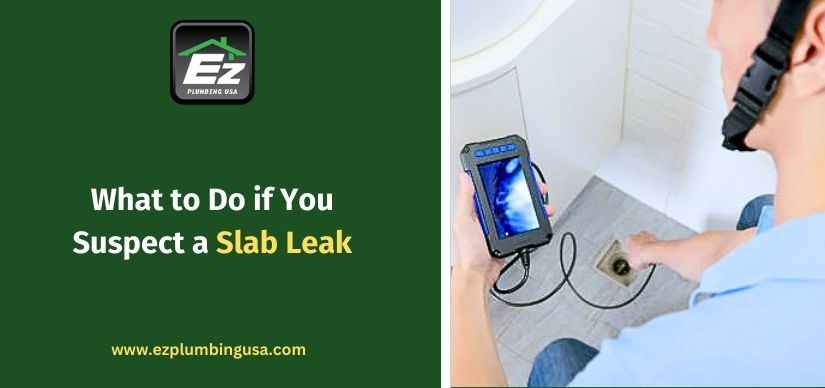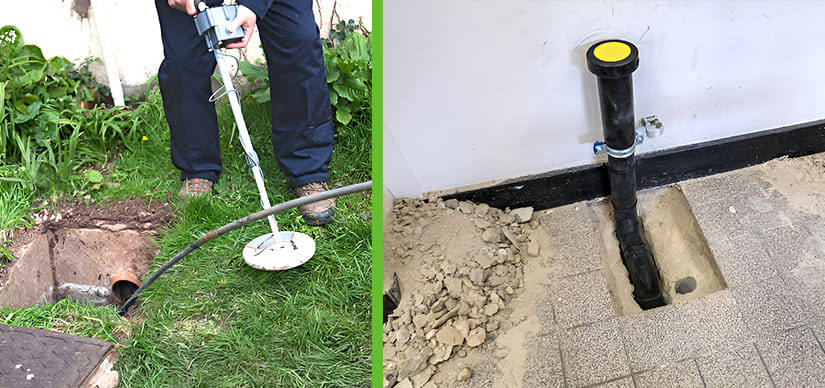What to Do if You Suspect a Slab Leak
Views : 1238

Slab Leak Correction San Diego occurs as a specialized service dedicated to minimizing extensive water damages. In this article, we shall thoroughly guide you through slab leak repair and inform you on how to best protect your home from incurring further damages.
What is a Slab Leak?
Causes of Slab leaks include
- Old Pipeline: Old pipes, copper pipelines in particular, are more susceptible to leaking because corroding and wearing with age.
- Ground Shifting: Natural earth movement results in settlement and other ground conditions, cracking or breaking pipes.
- Water Pressure: Excessive pressure of water strains pipes, making them more prone to leakages.
- Improper Installation: In an event when the plumbing system is incorrectly installed, it might cause a weak area that after some time will leak.
- Chemical Reactions: The pipes have a tendency toward corrosion and hence developing leakage because they are exposed to chemicals that are in the soil.
How to Detect a Slab Leak
- Water Bill Increase: A sudden increase in your water bill is a very common symptom that you might have a slab leak. Even tiny leaks can waste plenty of water.
- Water Pooling on the Floor: The appearance of a water puddle on floors, especially near walls, probably means that water is seeping under your slab.
- Sound of Running Water: Running water is also another indication of a slab leak. Faint sounds of water running while none of the faucets are open may suggest that there could be a slab leak.
- Warm or Hot Spots on the Floor: If you step on your floor and find some warm or hot areas, especially in places without direct heat source, it could probably indicate a hot water pipe leaking somewhere underneath the floor.
- Cracking of the Foundation: Water may erode the concrete foundation and cause a slab leak. You may notice this in the form of cracks in the floor or walls.
Why You Should Act Quickly
- Structural Damage: The foundation damage can lead to uneven levels of flooring, cracks on walls, and other issues of serious concern.
- Water Damages: They leak and give rise to interior portions like drywall, insulation, and flooring to get spoiled and lead to enormous repair costs.
- Moisture: Within the foundation can create a breeding ground for mold and mildew growth which is considered a possible health hazard.
- Higher Water Charges: Your water bills will be shooting higher even with a slight leakage. The water will be draining under the ground if it continuously leaks.
What to Do If You Suspect a Slab Leak
1. Turn Off the Water Supply
2. Get in Touch with a Slab Leak Repair Expert
3. Get Ready for the Leak Detection Service
- Electronic leak detection appliances: this watershed engineering uses sound to know about the tube walls being present in water input.
- Thermal Imaging Cameras: They can reveal differences in temperature and thereby indicate the position of the hot water leak.
- Pressure Testing: This testing will ascertain if there's a leak because water pressure will be tested.
Types of Slab Leak Repairs
1. Repiping
2. Rerouting of slab leak
3. Spot repair.
Preventing Slab Leaks
- Regular Inspections- Periodic inspection by your plumbing system can detect potential points of concern before they give rise to significant problems:
- Maintain Proper Water Pressure: Owing to the fact that excessive water pressure burdens pipes too much. Water pressure should be within the limits prescribed.
- Address Foundation Issues: Drift or settlement of the foundations of your house aggravators damage to pipelines. Thus, for future base issues you will have to prevent them but urgently address the ones at present:
- Use High-Quality Pipes- Then, use such pipes and install them across your plumbing. Upgrading your buildings plumbing system with good quality pipes would thus reap less expensive repairs in the long run.
Conclusion
FAQs
Q1. What slab leak is and how to prevent it?
Slab leaks occur when the water pipes situated under the foundation of a house leak due to rust, shifts in soil, or any other damage. These leaks can potentially lead to costly structural damage, increased water bills, and mold in the house if not quickly cleared up by a professional plumber.
Q2. What are some possible signs of a slab leak?
Strikingly high water bills, water pooling on floors, warmth in areas surrounding the foundation, cracks in the foundation, and the sound of running water even when taps are turned off are a few indicators. Detecting them early can save your home from severe damage.
Q3. How is a slab leak repaired?
Slab leaks can be repaired either through repiping, spot repair, or rerouting. The method used will depend on where the leak is located and its severity. A professional plumber will assess the situation and recommend the best approach for effective repair.
Q4. Can slab leaks be prevented?
Although it is impossible to prevent all slab leaks, there are preventive measures such as ensuring proper water pressure, regular plumbing inspections, and the use of quality pipes that can reduce the chances of slab leaks. Foundation repairs can also help in early prevention.
Q5. How much cost involves slab leak repair?
The repair cost varies depending on the method and type of leak. Typically, slab leak repairs cost between $500 to $4000. For accurate estimates, contact a licensed plumber who can assess your specific situation.




